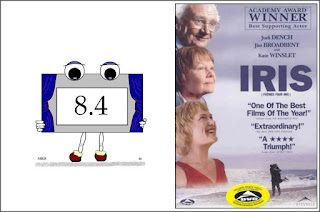Spartacus
Genre: antiquity
drama
With: Kirk
Douglas (Spartacus), Laurence Olivier (Marcus Crassus), Jean Simmons (Varinia),
Charles Laughton (Gracchus), Peter Ustinov (Batiatus), John Gavin (Julius
Caesar), Tony Curtis (Antoninus), Nina Foch (Helena)
Director: Stanley
Kubrick
Screenplay:
Dalton Trumbo (based on Howard Fast’s
novel)
Release: 1960
Studio: Bryna
Productions, Universal Pictures
Rating: PG-13
MBiS score: 8.5/10
‟ I'm free. And what do I know? I don't even know how to read.”
QuickView
Story-line: in
the first century before Christ, Rome was asserting its might as the centre of
the ‟civilized” world but its glory was far from immaculate. Power struggles were
frequent between members of the ruling class, slavery and colonialism were the drivers
of economic growth and jobless Romans
were kept quiet with bread and circuses. Spartacus, the proud son of a Thracian slave, a
forced labourer and a gladiator in training, will rebel against this world order
and confront the Empire.
Pluses: wondrous acting by Kirk Douglas (rugged, defiant but also tender), Jean Simmons
(regal in a complex role), Laurence Olivier (notable for his toughness), Charles
Laughton, Peter Ustinov and a superior cast, an intelligent screenplay that blends
insightful psychological portraits, period detail and virile − even funny − dialogues
to compose a striking piece of history, straightforward helming by one of cinema’s
great directors (behold the awesome combat choreography), suitable production
values, fine editing and an evocative musical score by Alex North.
Minuses: none
I can think of.
Comments: SPARTACUS, a movie epic for all tastes, reminded me of THE TEN COMMANDMENTS and BEN-HUR in its use of atmosphere, colours, landscapes and settings. Although it features some violence, Stanley Kubrick’s work paints an old-world picture of political wranglings (as complex and dastardly as today’s), romance, heartbreak and surprising solidarity. On a historical level, the Roman Empire has never ceased to fascinate and influence our world despite its brutality. On a cinematic level, Kubrick’s oeuvre still enthralls and will remain an object of admiration for decades to come.
MBiS
© 2022 – All rights reserved










